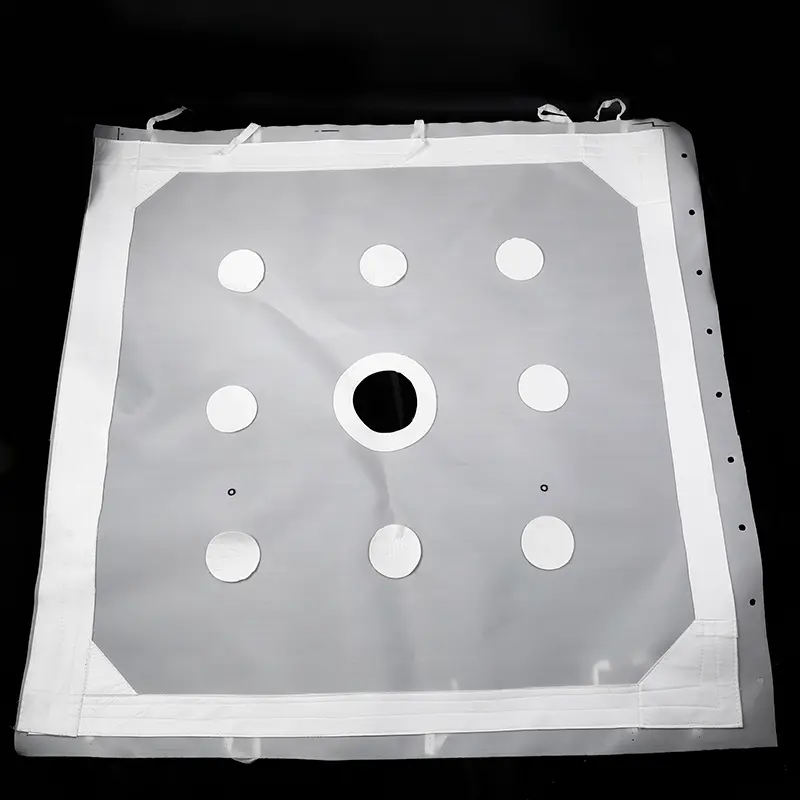Five Key Factors to Consider When Choosing Vacuum Desulfurization Filter Cloth
Release time: 2025-10-10
In modern industrial production, vacuum desulfurization filter cloth, as a crucial component of environmental protection equipment, undertakes the important task of flue gas purification. Its high-efficiency filtration performance helps enterprises reduce emissions and ensure compliance with environmental regulations. However, choosing the right vacuum desulfurization filter cloth is not easy. To ensure filtration effectiveness and extend service life, enterprises need to consider several factors when making a selection. Xuri will introduce five key factors to consider when choosing vacuum desulfurization filter cloth.
Filtration Efficiency and Performance
First, one of the most important factors when choosing vacuum desulfurization filter cloth is its filtration efficiency. The filtration efficiency of the filter cloth directly affects the removal rate of harmful substances in the flue gas, thus affecting whether the exhaust gas emissions meet environmental standards. High-efficiency vacuum desulfurization filter cloth can effectively remove sulfides and particulate matter from flue gas, ensuring that the emitted gas meets stringent environmental requirements. Therefore, enterprises should ensure that the filtration performance of the filter cloth meets the required standards when making a selection.
High Temperature Resistance and Corrosion Resistance
Since vacuum desulfurization filter cloths are typically used in high-temperature and high-humidity industrial environments, their high temperature resistance and corrosion resistance are crucial. In various industrial production processes, flue gas temperatures can reach several hundred degrees Celsius. If the selected filter cloth cannot withstand such high temperatures, it is prone to deformation, melting, or damage. Furthermore, some industrial flue gases contain corrosive substances, such as sulfuric acid gas, requiring the filter cloth to possess strong corrosion resistance. Therefore, when selecting a vacuum desulfurization filter cloth, it is essential to ensure that its high temperature resistance and corrosion resistance meet the usage requirements to ensure the long-term stable operation of the equipment.
Filter Pore Size and Air Permeability
The filter pore size and air permeability of vacuum desulfurization filter cloths are also important factors to consider when selecting them. The size of the filter pores determines the filter cloth’s ability to filter different particles. Pores that are too large may not effectively remove fine particles; while pores that are too small may obstruct airflow, affecting production efficiency. Therefore, selecting a suitable filter pore size is key to ensuring efficient filtration. Meanwhile, the air permeability of the filter cloth directly affects filtration efficiency. Overly dense filter cloth may increase resistance, hindering smooth production processes.
Filter Cloth Lifespan and Abrasion Resistance
The lifespan of vacuum desulfurization filter cloth is a crucial factor for businesses. Companies often aim to reduce the frequency of filter cloth replacements and lower maintenance costs through proper selection. The abrasion resistance and anti-aging ability of the filter cloth directly impact its lifespan. High-quality vacuum desulfurization filter cloth should possess excellent abrasion resistance, resisting wear or breakage during prolonged use. Furthermore, the filter cloth’s anti-aging ability is also important, capable of withstanding prolonged high temperatures and chemical corrosion, reducing replacement frequency.
Cost-Effectiveness and Cost-Effectiveness
While high-quality vacuum desulfurization filter cloth offers a longer lifespan and higher filtration efficiency, its price is often higher. When selecting, companies must consider not only filter cloth performance but also its cost-effectiveness. Choosing a filter cloth within budget while ensuring filtration effect and quality can effectively control costs. Companies should conduct market research to select vacuum desulfurization filter cloths that are reasonably priced and meet environmental protection requirements.
Conclusion
Choosing the right vacuum desulfurization filter cloth is crucial for ensuring environmental compliance and the economic benefits of enterprises. By comprehensively considering key factors such as filtration efficiency, high-temperature resistance, corrosion resistance, service life, and cost-effectiveness, enterprises can select the most suitable filter cloth, thereby improving production efficiency and reducing emissions. Whether in coal-fired power plants, chemical plants, or industries such as metallurgy and petroleum, the correct selection of filter cloth will greatly enhance the effectiveness of environmental governance and ensure that enterprises comply with increasingly stringent environmental regulations.


